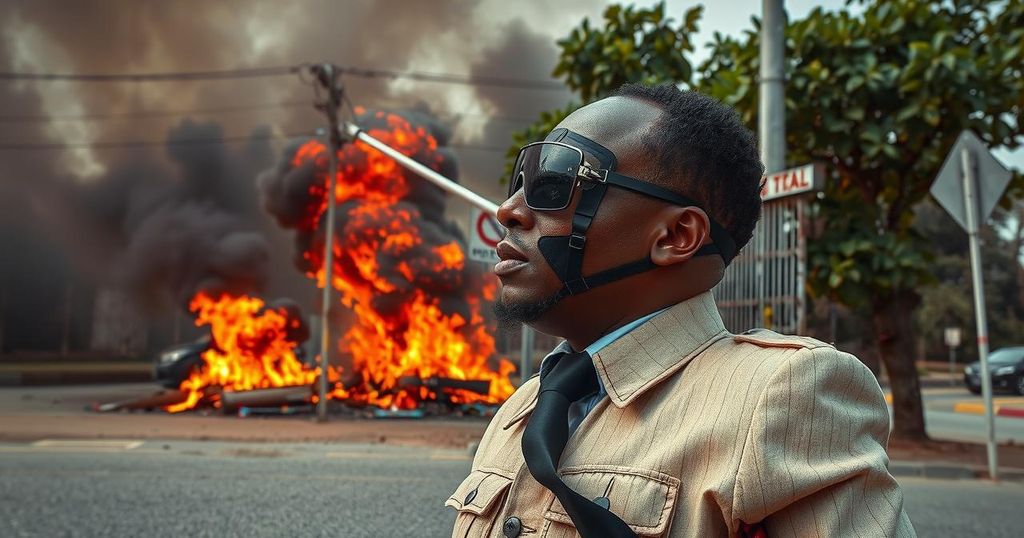Mozambique Violence Erupts Following Controversial Election Ruling

Mozambique faces severe unrest following a Supreme Court ruling that confirmed Daniel Chapo as the winner of contested elections. The ensuing violence has resulted in at least 21 deaths, including two police officers, with protests led primarily by supporters of the losing candidate, Venancio Mondlane.
Mozambique has descended into chaos following a decision by the nation’s Supreme Court to affirm Daniel Chapo of the ruling Frelimo party as the victor of the contested elections conducted on October 9. The announcement has incited widespread protests and violence, leading to the tragic deaths of at least 21 individuals, including two police officers. The unrest, characterized by looting and riots, predominantly stems from the supporters of the runner-up, Venancio Mondlane, who secured 24 percent of the votes compared to Chapo’s 65 percent.
The unrest in Mozambique emerges against the backdrop of a contentious electoral process, where the legitimacy of the results has been doubted by many citizens. Previous elections in Mozambique have faced similar challenges, with accusations of electoral manipulation and lack of transparency. Understanding the historical context of political tensions and dissatisfaction with government actions is critical in comprehensively grasping the current state of violence and public unrest following the election results. The recent ruling by the Supreme Court has intensified these pre-existing sentiments among those who oppose the Frelimo party’s continued dominance.
In summary, the confirmation of Daniel Chapo’s election victory has spurred significant violence across Mozambique, resulting in multiple fatalities and injuries. The repercussions of this ruling have highlighted longstanding discontent among voters who feel disenfranchised and have dramatically escalated tensions between party supporters. As the situation develops, it becomes increasingly crucial to monitor the potential for further conflict and its overarching implications for Mozambique’s political landscape.
Original Source: www.nytimes.com






